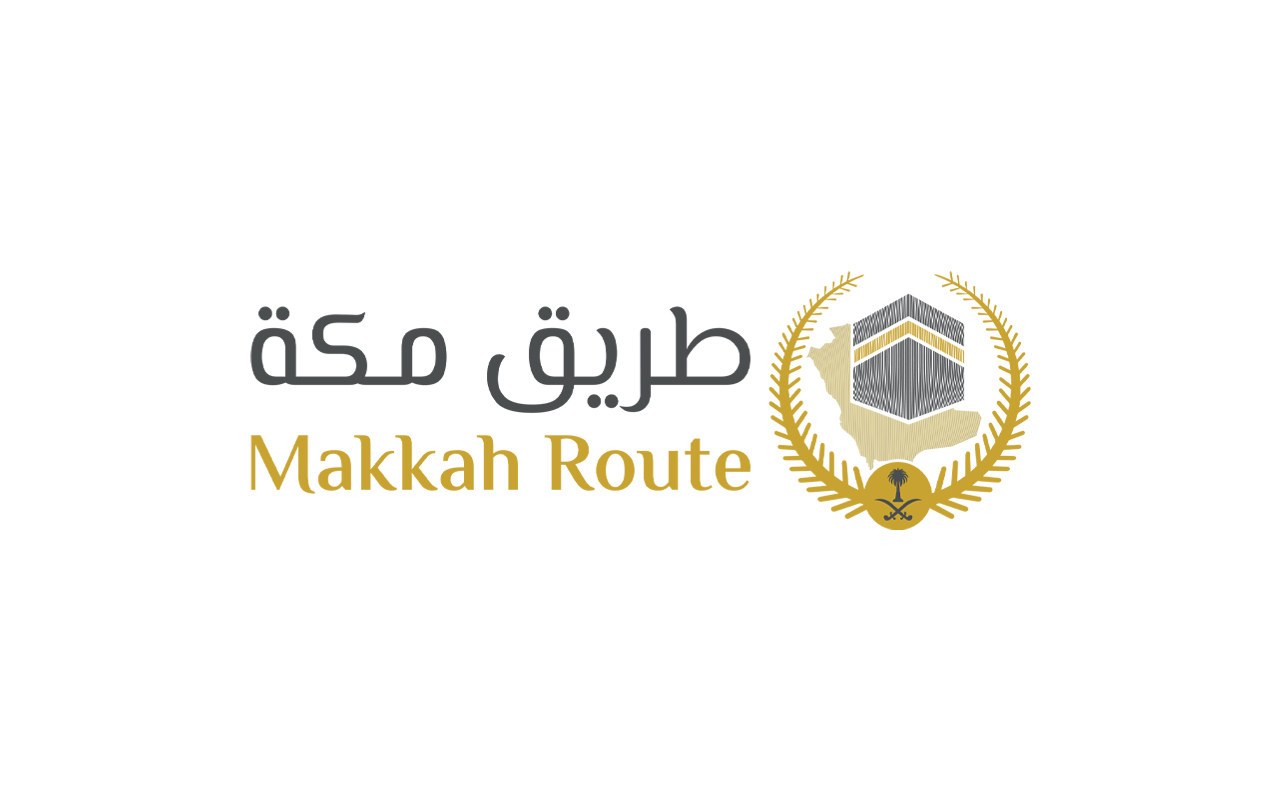Makkah Route Initiative
Makkah Route Initiative is an organizational and service initiative aimed at facilitating the journey of foreign pilgrims, starting from the procedures in their home countries, through their arrival, reception, and settlement in their accommodations in the Kingdom of Saudi Arabia, and concluding with their return. It was launched by the Ministry of Interior in 2017 as part of the Pilgrim Experience Program, a Saudi Vision 2030 Realization Program. The initiative has benefitted 940,657 pilgrims since its launch until 2024.
Countries benefitting from Makkah Route Initiative
Makkah Route Initiative operates in coordination with various entities, providing high-quality technology-supported services that save time and effort for the pilgrim
When launched, the initiative's scope encompassed pilgrims from Malaysia. Over time, it expanded, ultimately benefiting seven countries by 2024: Malaysia, Morocco, Indonesia, Pakistan, Bangladesh, Turkey, and Côte d'Ivoire.
Objectives of Makkah Route Initiative
Makkah Route Initiative aims to facilitate the journey of pilgrims arriving from abroad by enhancing the services provided to them and overcoming any obstacles they encounter. This includes issuing electronic visas, handling departure procedures in their home countries, receiving them, and ensuring their arrival at their accommodations in Makkah al-Mukarramah and al-Madinah al-Munawwarah. Additionally, the initiative provides services for coding, sorting, and registering luggage under the names of their owners, delivering them to their accommodations without the need to wait in arrival halls, all in accordance with transportation and accommodation arrangements in the Kingdom.
Supervision of Makkah Route Initiative
Makkah Route Initiative is implemented under the supervision of the Ministry of Interior, in collaboration with the Ministry of Foreign Affairs, the Ministry of Health, the Ministry of Hajj and Umrah, the General Authority of Civil Aviation, the Saudi Authority for Data and Artificial Intelligence (SDAIA), the Zakat, Tax, and Customs Authority, the General Directorate of Passports, and Elm Company.
Phases of the implementation of Makkah Route Initiative
The Makkah Route Initiative was partially launched in 2017 and was initially applied to a specific number of Malaysian pilgrims. In 2018, it was extended to include all pilgrims from Indonesia and Malaysia. In 2019, Tunisia, Bangladesh, and Pakistan were included in the initiative. However, in 2020 and 2021, the initiative was suspended due to the outbreak of the COVID-19 pandemic.
In 2022, the initiative was resumed, benefiting pilgrims from five countries: Morocco, Indonesia, Malaysia, Bangladesh, and Pakistan. By 2023, the number of beneficiary countries increased to seven, with the addition of the Republics of Turkey and Côte d'Ivoire.
In 2024, the initiative continued its work through dedicated lounges in eleven airports within the seven beneficiary countries.
Procedures of Makkah Route Initiative
The procedures of the Makkah Route Initiative begin with collecting pilgrims' biometrics, verifying their health and preventive requirements, obtaining the visa electronically, issuing the flight boarding pass, sorting and coding luggage by registering the owner's name at the departure station, and completing the entry procedures for the pilgrims into the Kingdom by the passport team in their home countries' airport after verifying the availability of health requirements, heading to their arrival station in Jeddah City or al-Madinah al-Munawwarah.
The pilgrims arrive at the hall designated for the Makkah Route Initiative inside the Kingdom, then proceed directly to their assigned accommodations, while the service entities work to deliver the pilgrims’ luggage directly to their residences without any waiting required.
Awards of Makkah Route Initiative
The Makkah Route Initiative was awarded the Makkah Excellence Award in its eleventh edition in 2019 for its efforts in facilitating Hajj and Umrah journeys. This recognition was specifically for streamlining the procedures related to health requirements, customs, and passports at their respective home country airports, facilitating the entry of flights into the Kingdom, and making the process as smooth as any domestic flight.
